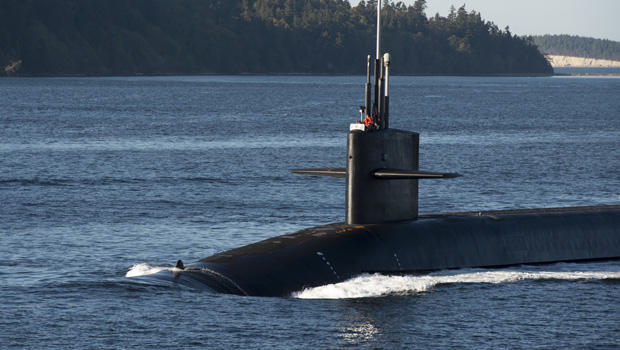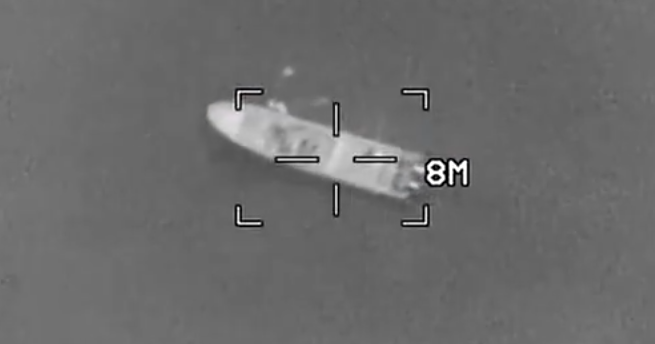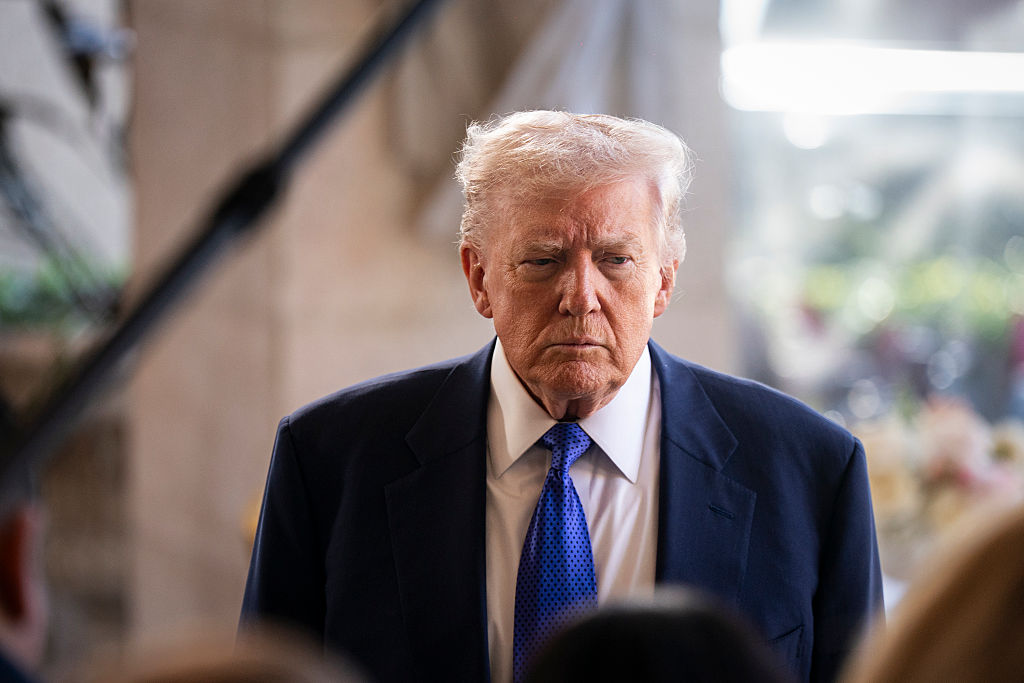Where will Trump and Kim's nuclear brinkmanship lead?
President Trump says the U.S. military is "locked and loaded" in its confrontation with North Korea. But how exactly would all that firepower be used? Here's David Martin at the Pentagon:
Behind the "fire and fury" rhetoric, there is one very hard fact: If the U.S. were to unleash its military power against North Korea, it would result -- in Secretary of Defense James Mattis' words -- in "the end of its regime and the destruction of its people."
Before he retired, Admiral James Winnefeld was the vice chairman of the Joint Chiefs of Staff, the number two man in uniform, during the Obama Administration. He knows that one submarine like the USS Kentucky can by itself carry enough nuclear weapons to annihilate North Korea.
When asked to compare America's nuclear forces to Korean nuclear forces, Adm. Winnefeld replied, "Well, there's just no comparison whatsoever."
Martin asked, "Were Kim Jong Un, for whatever reason, to launch a nuclear weapon against the United States, would he, in essence, be committing suicide?"
"Absolutely. Yeah, I mean, there is just no question that we would undertake a proportional response," Adm. Winnefeld replied. "But in the case of a nuclear weapon, that proportional response would be overwhelming and would probably mean the end of the Kim regime -- and he knows it."
"But people say this guy's different -- young, brash, unpredictable. Do you think the logic of overwhelming force really means much to him?"
"I think it does. The people I've spoken to in the intelligence community and elsewhere, and my own judgment, is that even though he's young and he's brash, he's not irrational. He's not suicidal."
But Kim knows one other thing: Even in defeat he could cause horrendous destruction to his enemies in South Korea, as Defense Secretary Mattis made clear to John Dickerson of "Face the Nation" in his only television interview:
"A conflict in North Korea, John, would be probably the worst kind of fighting in most people's lifetimes," he said.
Kim would take tens, perhaps hundreds, of thousands of innocent people down with him.
"The North Korean regime has hundreds of artillery cannons and rocket launchers within range of one of the most densely-populated cities on Earth, which is the capital of South Korea," said Mattis.
Kim -- like his father and grandfather before him -- has lived under what he believes to be the constant threat of an attack from the south. That fear (some would call it paranoia) is what is driving his quest for a nuclear weapon.
"He wants to have what we would view as a credible nuclear threat so we won't attack him," WInnefeld said, "which is sort of ludicrous because we don't have any intent to attack him in the first place."
"So this is his great equalizer against the great American superpower?" Martin asked.
"It's his insurance policy, in his view."
Although Kim has tested missiles with a range great enough to hit the United States, and is credited with being able to produce a nuclear warhead small enough to go on top of those missiles, he is not yet insured. To have a reliable weapon, his scientists still must develop a nose cone that can shield that warhead from the heat and vibration of entering the Earth's atmosphere. The Pentagon's Defense Intelligence Agency estimates that could happen as soon as next year.
Eventually, Winnefeld said, the day is coming: "They are going to get there."
- North Korea can now make missile-ready nukes, intelligence assessment finds (CBS News, 08/09/17)
The U.S. military has been preparing for that day for the past 15 years, spending $40 billion on radars and interceptor missiles to shoot down an incoming North Korean warhead. Earlier this year, the ballistic missile defense system shot down a mock North Korean ICBM launched from an atoll in the Pacific.
"No system's perfect, to be sure," Adm. Winnefeld said, "but I've got a lot of faith in that system."
"No system is perfect, but when you're dealing with nuclear weapons, one getting through is an absolute catastrophe," said Martin.
"It is."
- U.S. missile defense test fails to intercept target over Pacific (CBS News, 06/22/17)
But look at it from Kim's point of view; he could not be certain a nuclear armed missile would get through the missile defense system, but he could be certain that if he tried, it would be the end of his regime.
"I think At the end of the day," said Adm. Winnefeld, "two essential facts stand out: The first is, it's very unlikely that he will ever willingly give up his program. But it's also very, very unlikely that he will ever use it, as long as we don't try to overthrow his regime."
Can the U.S. live with that? It's up to the commander-in-chief, who has said he will not allow North Korea to threaten America or its allies.
- Trump warns North Korea will be "met with fire and fury" (CBS News, 08/08/17)
- Trump warns military "locked and loaded" against North Korea threat (CBS News, 08/11/17)
- As U.S.-North Korea rhetoric heats up, fear mounts in Guam (CBS News, 08/09/17)
- Timeline: What has Trump said about North Korea over the years? (CBS News, 08/10/17)
- Poll: Americans uneasy about North Korea and Trump's ability to handle it (CBS News, 08/08/17)




